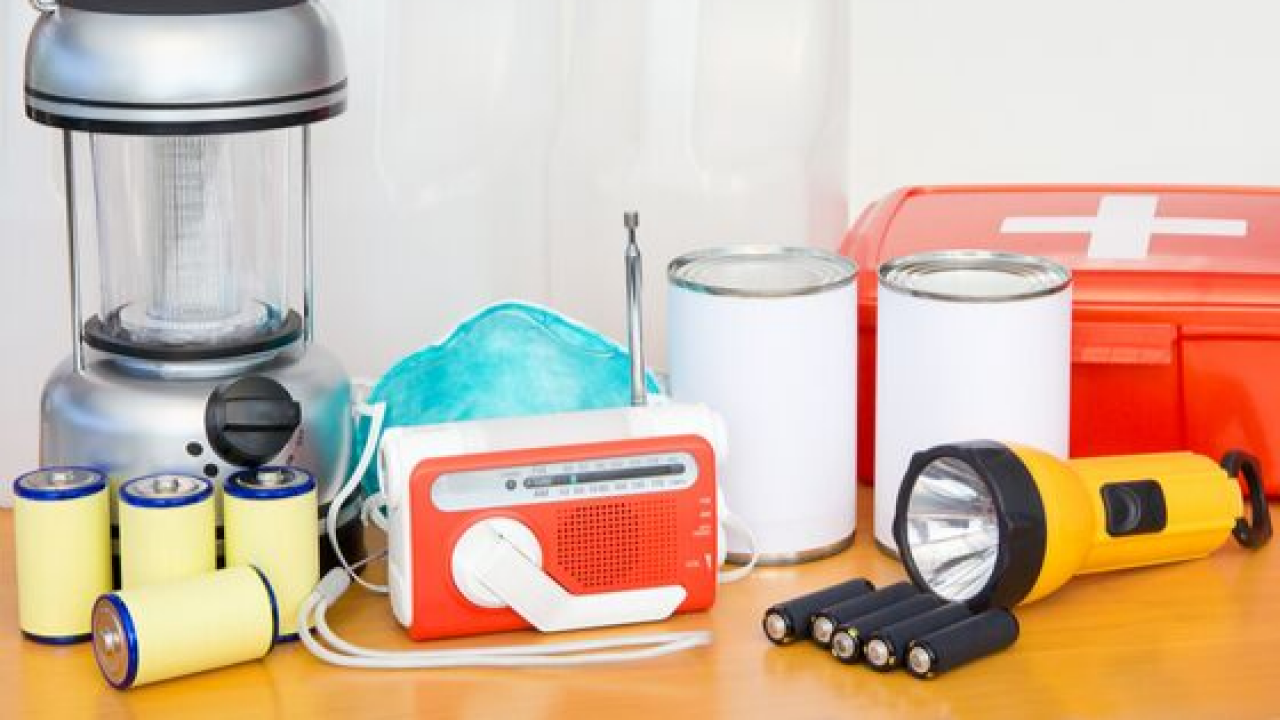People are often overwhelmed when thinking about the possibility of a disaster, but having a simple, practical plan can save critical time during an emergency. It’s important to consider the types of events that could impact you and your family in order to plan and prepare. Some events may require you evacuate your home; others may let you remain in your home, but leave you with limited resources (utilities, food, water and medical supplies, for example). Planning doesn’t have to be complicated. Keeping it simple and practical is the best way to ensure it is effective.
Personal Emergency Preparation
Here are a few simple steps to create a personal preparedness plan for your family or household. Start by signing up to receive public safety alerts to stay informed through the local sheriff’s office. Determine what you’ll need if you’re suddenly advised to evacuate or shelter in place; also, how you’ll communicate with your family if you’re separated during a disaster.
Have a go-bag packed and ready with essentials for each family member in case you have to evacuate on short notice – medications, glasses, legal documents, cash, food, pet supplies, change of clothing, etc. Make a checklist of items you can’t pack ahead that would need to be collected quickly (things like refrigerated medications). It’s also essential to have supplies that allow you to sustain yourself at home for several days without utilities – water, food, flashlights, battery-operated radio, first aid kit and extra batteries, for example. Prepping these supplies ahead of time can save time and reduce stress in the moment.
A family emergency communication plan can give you peace of mind, knowing that your family and friends are safe. Disasters can disrupt communication via electronic devices, so keep a paper copy of contact information. Include a designated out-of-town contact with whom everyone can check in. You’ll also want to designate meeting places, both locally and out-of-town, so you will know ahead of time where to go to reconnect with your family. If you have a family member with disabilities or special needs, consider various ways to communicate with them in your planning.
There are a lot of resources available to help with personal preparedness. For more information visit www.ready.gov/make-a-plan. Once you have a plan, be sure to review and practice it with your family regularly.
Community Emergency Preparation
While personal preparedness is important for individual families, it’s also important for us as a healthcare facility to be able to respond to the needs of our patients and our community. We recognize that disasters can come in many forms—wildfires, earthquakes, utilities failures, communications failures, extreme heat, disease outbreaks, or mass violence. We are now also faced with the challenge of pre-planned power outages that may affect our entire community. Without power, people who depend on medical equipment to sustain life or mobility face significant risks.
Each disaster scenario requires an organized, community-wide response. At MCHC Health Centers, we work diligently within our organization, as well as with other agencies, to plan for the needs of our most vulnerable community members. Each of our four health centers collaborates with their local health department, healthcare agencies, first responders, law enforcement, shelters, and others to plan and coordinate our efforts. We meet routinely and we practice our responses by participating in drills throughout the year. These agencies are all dedicated to this partnership and to working together on emergency preparedness to ensure the health and safety of our community.
During the past few years, MCHC has really expanded its program so we are better prepared to provide service during an emergency. We recently implemented an alert system that allows us to quickly and easily communicate with staff via text, email and phone. We’ve also purchased additional automatic generators to power things like vaccine refrigerators and computer servers.
Emergencies can be traumatic and given the experiences our communities have endured in recent years, it’s important to remember that we are all in this together. After trauma comes recovery. Let’s all work together to be as prepared as possible for any disasters and continue to support each other through the recovery process.
TinaAnn Anderson is the Emergency Preparedness Coordinator and Infection Prevention Nurse at MCHC Health Centers—a local, non-profit, federally qualified health center offering medical, dental and behavioral healthcare to people in Lake and Mendocino Counties.

 MyChart Login
MyChart Login

